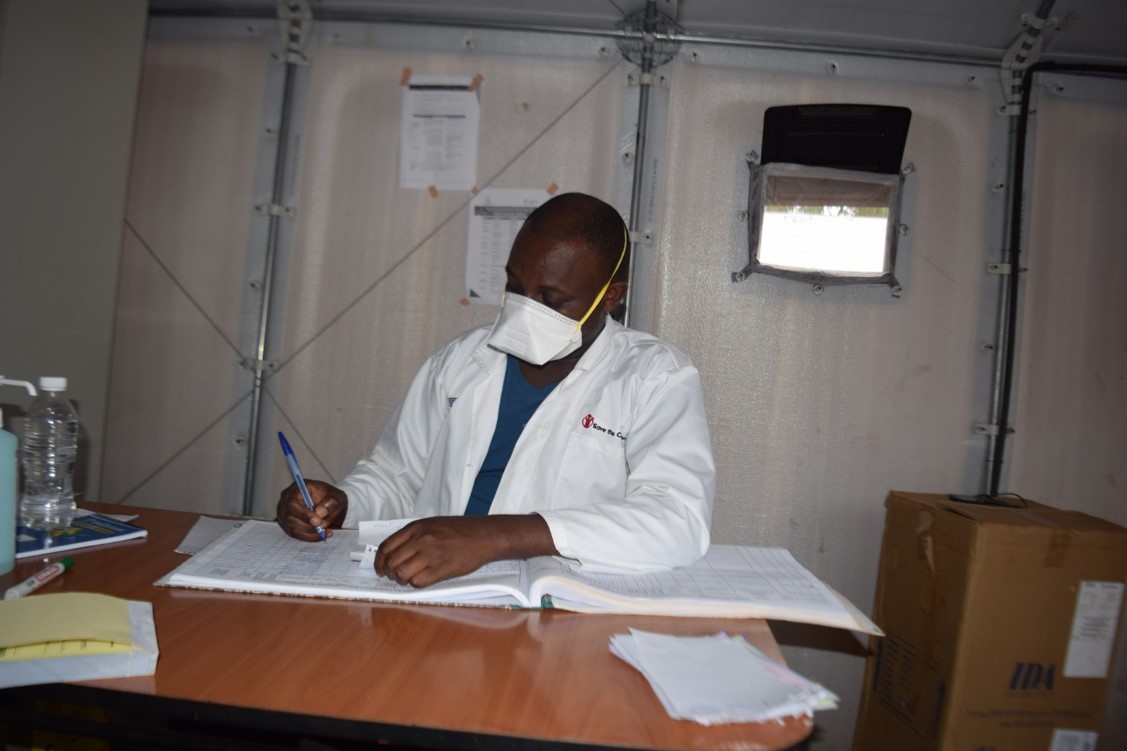While much of the world’s attention is on battling the Covid-19 pandemic, which has now reached many countries in Africa, measles continues to silently kill large numbers of mostly children in the Democratic Republic of Congo (DRC). DRC – which has also been fighting an Ebola epidemic – declared a measles outbreak in June 2019. Together, the outbreaks have infected hundreds of thousands of children and killed thousands more. Some children die at home, never having reached proper medical care, or having been seen only by a traditional healer. The measles epidemic response requires a multi prong response including vaccination, treating children for the disease, and for other illnesses such as malnutrition and all of this must be implemented insecurity and significant logistics challenges. At the same time, Covid-19 is a threat and distraction for governments, donors and health organisations working in DRC.
Overshadowed by the Ebola outbreak in the east of DRC, the measles response has been long under-funded. It took months before the epidemic was finally declared in June 2019, while the vaccination campaigns organised by authorities were marked by delays, coordination issues and a lack of supporting partners, many of whom were focused on the response to Ebola. A supplementary vaccination campaign, intended to catch up’ the children who had been missed was repeatedly postponed, before finally taking place in late 2019. All of these factors contributed to the disease’s heavy toll in DRC, making it the country’s deadliest measles epidemic recorded to date and the largest in the world today.

Whilst the overall number of measles cases have reduced, but the epidemic is far from over. Some areas in DRC are reporting increases in reported measles cases and there are about 100 health zones where action is urgently needed. Since January, more than 50,000 cases and 600 deaths have already been officially notified and many more not reported. Measles, malaria, diarrhea and respiratory infections remain the largest killer of children globally, and in DRC.
Covid-19 has created extra barriers to vaccinating children against the disease. Whilst increasing some public health activities like hand washing campaigns is beneficial for all, implementing other vitally important preventive measures to reduce the spread of Covid-19 is vital to protect communities and health workers, especially in a country like DRC where the health system is very limited. At the same time however, these measures are having a negative impact on the overall measles response, including transporting vaccines, assembling dedicated teams and launching vaccination campaigns. The same happened during the Ebola outbreak in west Africa in 2014 when measles vaccination activities were disrupted, leading to a resurgence of the disease. As everyone focusses on Covid-19, it is important that health teams continue responding to other health emergencies including measles in DRC and other developing countries. A single-minded focus on Covid-19 will sow the seeds of the next major health crises. Government officials and donors must not contribute to reducing vaccinations, nutrition support or malaria. Neglecting major and long-standing public health issues now will make everyone complicit it tomorrow’s avoidable deaths.